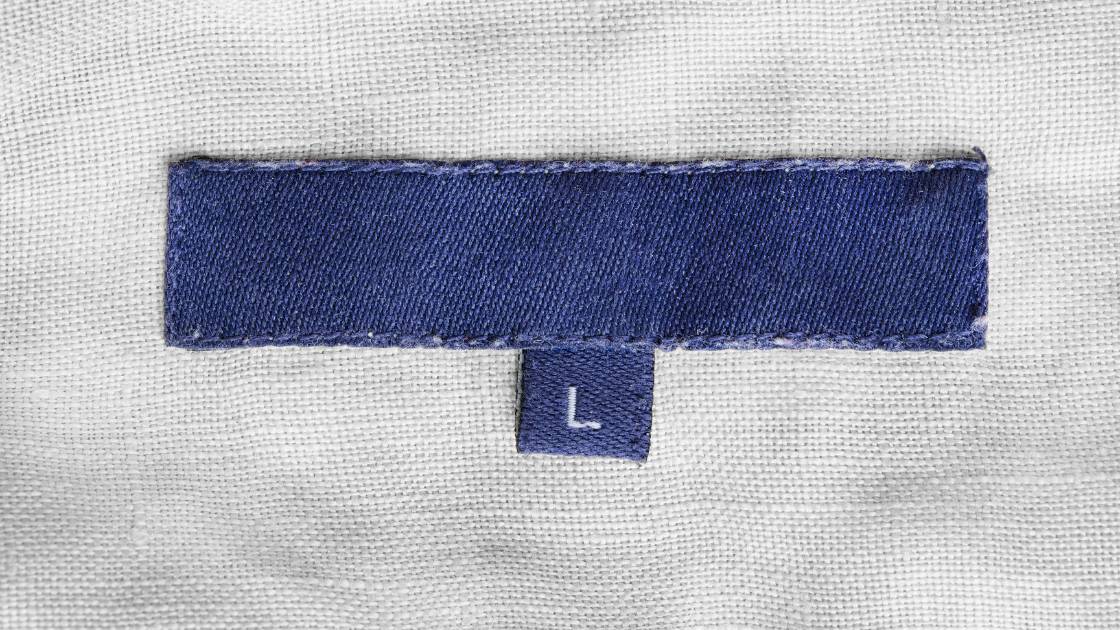Are you thinking of starting your own fashion label? Congratulations! It’s no secret that the fashion industry is tough to crack, but with proper planning and execution, you can make your dream a reality. Here are 9 things to be aware of when starting your own fashion label:
Table of contents

Tip 1: Know Your Customer
When it comes to starting a fashion label, knowledge is power – and that means knowing who you’re trying to target. Thinking deeply about your customer base – even if it’s just a vague idea in the beginning – can be a major key to success. Do some research and figure out who you want to speak to with your designs and what culture resonates with them to create a connection. Without knowing your customer base, you may be creating beautiful clothes but not selling any! Be intentional when crafting how you want to reach people and keep those elements in mind throughout the design process. Understanding who your customer really is and what your customer really wants is essential on your fashion journey.

Tip 2: Make A Realistic Business Plan
Starting a fashion label from the ground up is no easy task. For most founders, it’s an epic challenge. Most businesses fail due to a lack of a realistic plan for success, so you’ll want to make sure you have one in place before you get started. To make an effective business plan for your fashion label, set achievable goals each month that will help slowly grow the company until it can stand on its own two feet. Also be sure to factor in any unexpected obstacles or challenges that may arise during the process of building your startup so that you can anticipate and address them in advance.
When writing a business plan for a fashion label, it is important to consider all the aspects of the business. The plan should include an analysis of the industry and market, as well as an understanding of the competitive landscape. It should also outline your financial goals and strategies for achieving them. Additionally, it’s important to have a clear vision for the company and its products.
The first step in writing a professional business plan is to conduct market research. Researching the target market will help you identify potential customers for your fashion brand as well as their needs and preferences. This research can be gathered from sources such as surveys, interviews, or focus groups with consumers in your target demographic. Understanding who your customers are and what they want will allow you to create products that meet their needs and preferences more effectively.
The next step is to develop an accurate budget based on your estimated cost of production from the clothing manufacturers, marketing expenses, overhead costs, etc. It is important to be realistic when estimating these costs so that you can manage them properly throughout the course of running your business. Additionally, consider how much funding you need upfront in order to get started. Make sure that you have enough capital in reserve to cover any unexpected expenses that may arise.
It’s also vital that you include in-depth information about your team and operations in your business plan. This includes details about who will be responsible for each aspect of running the company (manufacturing, design, finance, marketing). Be sure not only to list each team member’s qualifications but also provide examples of how they will contribute towards meeting goals outlined within the plan itself.
In addition to outlining detailed plans for operations and management tasks, it’s important to identify key strategies that will differentiate your fashion label from others within its industry. Consider including unique selling points in order to attract customers such as ethical sourcing practices or innovative designs tailored specifically towards certain demographics or niche interests. Once identified, ensure that these elements are marketed appropriately both online through social media channels and offline through events or collaborations with other brands or influencers.
Finally! Don’t forget about legal considerations when crafting a business plan for a fashion label such as trademark protection for logos or designs used on clothing items. Consulting with professionals who specialize in intellectual property law can help ensure that all measures are taken into account when starting up this type of venture so that long-term success can be achieved without any major complications down the road!

Tip 3: Be Willing To Start Small
Starting small doesn’t mean starting insignificant. If you are a fashion entrepreneur, you’ve got to recognize that having a grand vision and mission for your label is great and all, but it all starts with baby steps. Being willing to start small positions you to learn as you go and better understand the operations of the industry and your place within it. With every success building upon the last one, you’ll eventually find yourself not only meeting your initial goals but exceeding expectations. Being willing to begin at the bottom—from researching trends, studying what’s been done before, and creating opportunities from scratch—will prove more beneficial in the long run than looking for shortcuts to success.
Starting small has many benefits for fashion entrepreneurs. One of the most important is the ability to test and refine ideas without large investments in time, money and resources upfront. With a small budget and minimal overhead, fashion entrepreneurs can experiment with designs, create prototypes, and assess consumer feedback without risking too much of your precious capital. By starting small and refining their strategies gradually over time, fashion entrepreneurs are able to stay agile, pivot quickly when necessary, and make informed decisions about their label’s growth trajectory.
Organic growth also allows fashion entrepreneurs to build relationships with their customers in a meaningful way. When businesses start small they have an opportunity to form genuine connections with their consumers and manufacturers – something that larger brands often struggle to achieve due to the impersonal nature of mass production. By engaging directly with individual customers through personalized service and marketing campaigns tailored towards specific target audiences, fashion entrepreneurs are able to nurture meaningful relationships that can sustain their business long term.
In addition, growing a business organically gives fashion entrepreneurs an opportunity to focus on quality over quantity in terms of both product design as well as customer service. Without excessive production or marketing costs associated with scaling too quickly, fashion entrepreneurs are able to prioritize quality control measures such as testing fabrics for longevity or ensuring consistent fit across different sizes in order to deliver products that meet consumer expectations in terms of quality and value for money. Additionally, by providing superior levels of customer service from initial inquiry to post-purchase support they can build loyalty amongst existing customers while also attracting new ones.
Finally, by taking an organic approach towards growth fashion entrepreneurs can make sure that they remain true to their original vision for the brand while still being flexible enough to adapt as needed along the way. This allows them not only to keep up with changing trends but also helps protect against costly errors resulting from a lack of foresight or preparedness when it comes time for expansion efforts down the line.

Tip 4: Understand The Importance Of Branding
When launching a new fashion label, one of the most important elements is to create a unique identity that reflects your values and sets you apart from other businesses in the industry. Through effective branding, you can craft an identity for your company that customers will recognize, carry with them into future interactions with your business, and share with their friends and family. Crafting a carefully considered logo, message and look for campaigns, social media posts and website will shape how audiences view your business providing invaluable insight on how to refine it over time. As any successful fashion entrepreneur knows well, developing a strong brand should not be underestimated; it’s critical for establishing trust and loyalty among customers.
Branding is essential for a successful fashion business, as it helps create an identity and establish trust between the brand and its customers. A strong brand allows fashion entrepreneurs to differentiate themselves from their competition and stand out in a crowded market, while at the same time providing a unique experience for customers that will keep them coming back.
When building an online presence, branding plays an even more important role due to the sheer number of competing businesses. By crafting a consistent message, look and feel across all digital channels – including websites, apps, social media platforms and email marketing campaigns – fashion entrepreneurs can create a powerful connection with their target audience that will help them build loyalty over time.
Furthermore, creating branded content helps encourage engagement beyond transactions; by offering helpful tutorials, inspiring stories or valuable resources related to your industry – fashion entrepreneurs can demonstrate the value they provide beyond selling products or services. This type of content can be used across multiple channels such as email newsletters, blog posts or social media updates. Not only does it build loyalty among existing customers but also helps attract potential new ones through organic search results or referrals from current followers/subscribers.

Tip 5: Have A Great Team In Place
Having a strong core team is absolutely key for any fashion entrepreneur. Make sure to carefully consider the people you choose to join your team and their technical skills, as well as their ability to drive your business toward success. Having team members with great internal and external communication and the capacity to work in both a collaborative and individual setting can prove invaluable when it comes to running a successful startup fashion brand. Additionally, be mindful of how each person’s skillset perfectly complements the others – all while being capable of adapting to whatever obstacles come along the way. Appointing knowledgeable and talented individuals to your inner circle can provide creative support when needed and allow you to take calculated risks at the right moments with confidence.
When it comes to starting a small fashion brand, there is no one better to have on the team than people who are passionate about fashion and have the necessary skills to create something unique. The most important members of the team include creative directors, designers, product developers, marketers, public relations and social media managers, and business strategists. Here are some of the key roles you’ll need to fill. Remember, this doesn’t necessarily mean that you need to hire all these various people, especially starting out, but it DOES mean that you’ll have to wear these different hats until you can build up your team:
Creative Director
Creative directors are responsible for vision and layout when it comes to developing the brand aesthetic. They set trends by mixing classic pieces with new ones to create a unique look that stands out from competitors. Creative Directors also collaborate with Designers to bring their ideas to life in an attractive way that resonates with consumers.
Designers
Designers create garments that sell well while staying true to the brand identity; they are constantly innovating new silhouettes and materials that can be used for each collection.
Product Developer
Product Developers play a key role in the production process by understanding consumer needs and translating them into tangible products such as clothing samples or prototypes. They ensure quality control during mass production by testing samples from various manufacturers before approving them for sale. Product developers also work closely with Designers throughout the entire process from concept creation all the way through delivery of finished goods.
Marketer
Marketers use consumer insights gathered from market research studies to develop effective marketing strategies tailored towards target audiences. It’s up to them to craft campaigns that promote physical products as well as digital experiences that will help establish trust between customers and brands over time.
Public Relations
Public Relations professionals represent the company in different events or media outlets while managing crisis situations if needed; they use their experience in communication and networking skills to build strong relationships with potential customers.
Social Media Manager
Social Media Managers are responsible for overseeing posts on all social platforms, engaging with followers and creating content regularly that speaks directly towards existing customers or potential ones alike. They know how to leverage different tools available in order to reach larger audiences while staying true to brand values at all times.
Business Strategist
Lastly but not least, Business Strategists help turn creative visions into reality by implementing plans that make financial sense while still allowing creativity free reign; they provide expertise in areas such as cost-benefit analysis of decisions made along the way, helping entrepreneurs make sound decisions before investing large amounts of money into projects without guarantee of success at first sight.
When starting your own fashion label, it is essential to have a strong core team comprised of individuals who share similar values but possess different skill sets. These people should be able to think outside the box while maintaining focus on long-term goals you set in the beginning.

Tip 6: Be Prepared For The Financial Reality Of Fashion
Starting a fashion label is an exciting endeavor and an opportunity to turn your dreams into reality. But it’s important to be prepared for the financial realities of the fashion industry, which can sometimes come as a shock. It takes a significant investment of time, energy, and money to launch and maintain a successful clothing line, so make sure to plan ahead for success! Ensure you have the capital necessary to purchase materials, pay production costs, hire staff, and create professional marketing materials. Make sure you understand exactly what you’ll need in the bank when starting out. It’s not worth launching your brand if you can’t afford to keep going!
When planning to launch a startup fashion brand, the three most important financial considerations are the initial investment, the cost of production, and marketing expenses.
Initial Investment
Starting a fashion label requires an upfront investment in materials, tools, and employees. This can range from just a few hundred dollars to tens of thousands depending on the size and scope of the project. It’s important to have enough capital on hand to cover both pre-launch costs such as equipment purchases and post-launch overhead like rent or salaries. A thorough budget should be created in order to accurately estimate what is needed for success.
Cost of Production
Producing a clothing line involves more than just fabric and sewing machines– it also means investing in quality control measures, packaging materials, and labor costs such as wages for factory workers. Understanding how much it will cost to produce your garments before you launch is imperative; failing to account for these expenses can quickly put you in the red. Researching manufacturers who offer competitive rates and favorable terms is essential when trying to keep costs low while maintaining high-quality standards.
Marketing Expenses
Raising awareness of your brand requires an additional expenditure beyond simply designing clothes; creating effective marketing materials such as advertisements or promotional videos involves hiring photographers, videographers, copywriters, designers– all of whom need to be compensated for their work. Many small businesses underestimate their marketing budget needs so it’s important to plan ahead for maximum visibility within target audiences that will help translate into sales over time.

Tip 7: Anticipate Trends & Stay Relevant
Are you ready to wow the fashion world with your brilliant ideas? You’ll need to go beyond designing stylish, trendsetting garments and accessories – you’ll also need to stay a step ahead of the competition. Running a fashion brand requires constantly being aware of trends and not getting stuck in a rut. It is essential to stay fluid and be open to change in order to remain competitive and relevant in the ever-evolving fashion industry. Staying up to date on current trends helps ensure that your brand doesn’t become stagnant and keeps it appealing to customers. Staying one step ahead of the competition by anticipating future trends can increase the likelihood of attracting new customers and retaining existing ones.
Knowing what’s in and what’s out is integral for any fashion entrepreneur looking to make their mark. Staying up-to-date on current trends and forecasting future ones is key. If you don’t anticipate changes in the market, you won’t be able to remain relevant. Do your research (or hire an intern!) to learn the ins and outs of current trends and those yet to come.

Tip 8: Constantly Evolve & Innovate
If you want your fashion startup to stay ahead of the curve, you should constantly be evolving and innovating. Don’t get stuck doing just one thing- even if it’s working! Not only can new trends and technologies give you a competitive edge when it comes to things like fabric choices, garment construction or marketing strategies – they can also spark fresh ideas and inspire design. Keep an eye on emerging materials and technologies that could help you stand out. Don’t be afraid to experiment with concepts that no one has tried yet! In a crowded marketplace, standing out from the crowd is what will make you successful.
Being willing to experiment with ideas that no one has tried yet can help create a competitive edge over competitors who are stuck in their comfort zone or following what has already been done before. Taking advantage of new technologies such as virtual/augmented reality, 3D printing or AI-driven analytics can also help make fashion businesses more efficient while improving their bottom line.
Staying fluid means keeping an open mind when it comes to customer feedback. Many times it’s through customer input that entrepreneurs come up with new ideas or product lines. Listening closely to customer needs allows businesses to keep abreast of changing trends.

Tip 9: Don’t Give Up!
Here’s the biggest tip of all: Don’t Give Up!
Starting a fashion label can be intimidating – there’s so much to consider! But, don’t let that discourage you from pursuing your dreams. Remember, the only way you won’t succeed is if you give up. So, take a deep breath and keep going! When you hit a wall of frustration or discouragement, think about your long-term vision for success. Take time out to remind yourself why this is important to you in the first place. After new inspiration fuels your fire, dive back into research and planning with a positive perspective on the future. In no time at all, with careful planning and positivity, you’ll reach success with your fashion label!
So there you have it, some tips to ensure a successful fashion startup label. Of course, this is not an exhaustive list but it’s a good starting point. The most important thing is to never give up on your dreams and persist through the tough times because eventually, all of your hard work will pay off.
Do you run your own fashion label? Share your tips for success in the comments!



